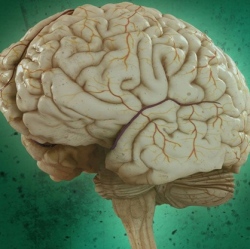
Scientists at the University of Western Ontario in Canada enrolled patients with Parkinson’s disease who were scheduled to have deep brain stimulation (DBS) surgery and removed small biopsies near the surface of the brain. They then multiplied the cells in culture to generate millions of patient-specific cells that were then subjected to genetic analysis.
These cells exhibited regeneration and characteristics of a fundamental class of brain cells, called glia. The cells expressed a broad array of natural and potent protective agents, called neurotrophic factors.
“It is our hope that the results of this study provide a footing for further advancement of personalized, cell-based treatments for currently incurable and devastating neurological disorders,” said Matthew O. Hebb, M.D., Ph.D., FRCSC, a researcher involved in the work from the Departments of Clinical Neurological Sciences (Neurosurgery), Oncology and Otolaryngology at the University of Western Ontario in Canada.
Such lab-grown therapeutic brain cells could be used in the future to treat a wide range of neurological conditions like Parkinson’s, and also express a broad array of natural and potent protective agents providing preservation and protection against injury, toxins and diseases.
